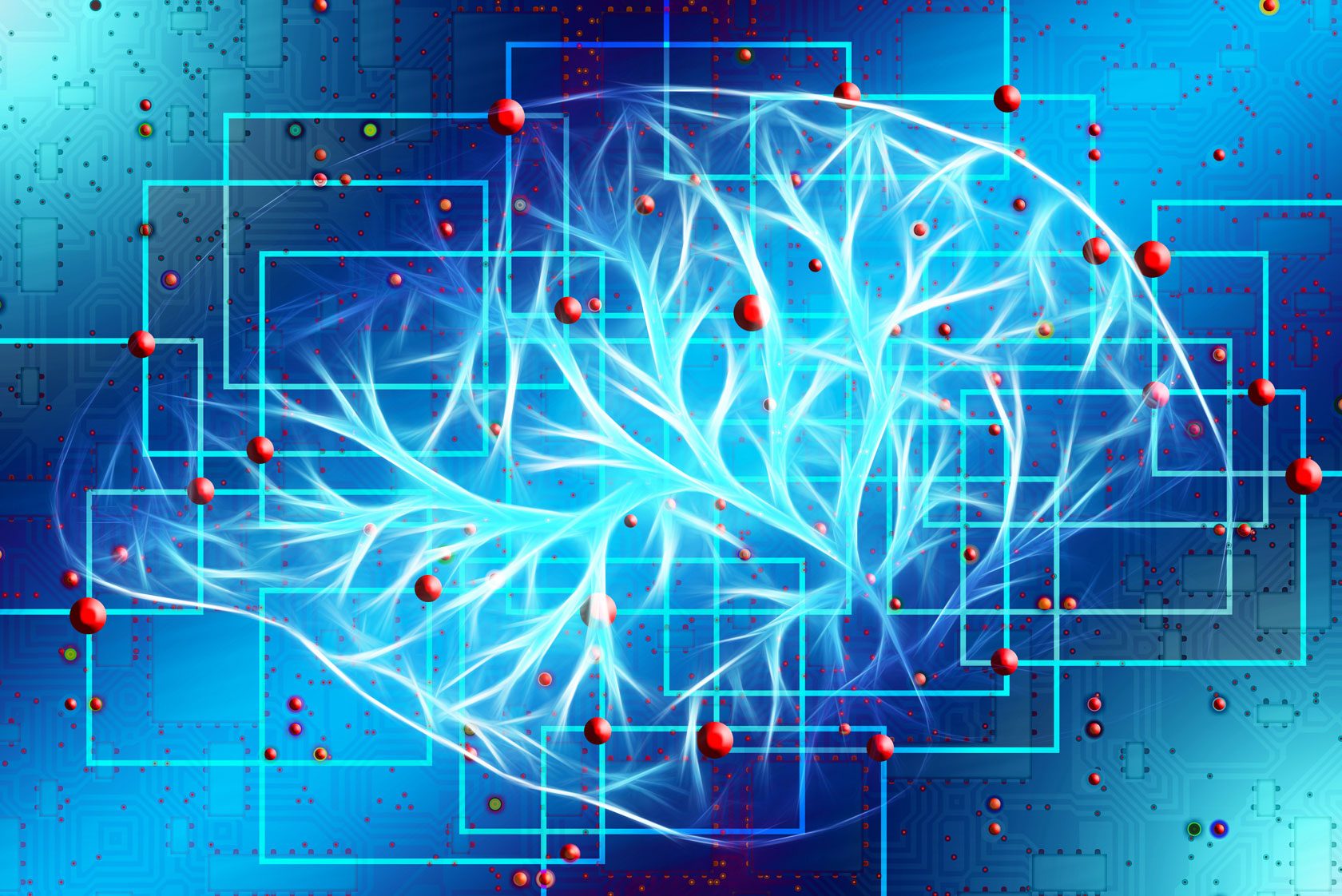
DGI Day Practicum: How Does Artificial Intelligence Change the World of Information Professionals?
How do artificial intelligence (AI) systems work and how do AI and data mining technologies transform the world of information professionals? The German Society for Information and Knowledge e.V. (DGI) invited participants to the day practicums in Frankfurt am Main.
by Dr. Andreas Oskar Kempf
The DGI Day Practicums 2018 took place in Frankfurt am Main on the 8th and 9th of November.
Under the motto “The algorithm you have to go with”, the discussion centred on how AI and data mining technologies are changing the work of information professionals.
Artificial intelligence requires new skills
This year’s Day Practicum kicked off with public sessions of two DGI groups. The Education and Information Literacy Research Group discussed the topic Artificial Intelligence in Education. Previously, several keynote presentations shed light on the topic from different perspectives. Stefan Holtel, Artificial Intelligence Explainer at PwC, emphasised that any major new technology requires learning new skills. AI systems, which essentially automate decisions, call for cognitive literacy, says Holtel. Besides the ability to make decisions, even with large machine-preprocessed amounts of data, these are characterised by being able to handle ambiguity or recognise patterns rather than just details. It is also important to be aware of the current limitations of AI systems. For example, in AI-based language systems, the cultural context of language is not understood or processed.
Against this background, several keynote speeches addressed the growing importance of information literacy (IL). Matthias Ballod, professor of German Didactics at the University of Halle-Wittenberg, emphasised the teaching of source criticism in teacher training. Paul Libbrecht from the Leibniz Institute for Educational Research and Educational Information (DIPF) presented a multilingual MOOC on basic information literacy that allows self-paced learning. IL and AI – a heart and a soul? Christine Burblies from the Technical Information Library (TIB) and Dr. Tamara Pianos from the ZBW Leibniz Information Centre for Economics had a controversial dialogue. AI-based systems could help find information by integrating the individual needs of the users and making the search for information location-independent.
#ki im Kontext von IK – Christine Burblies, Tamara Pianos im Zwiegespräch @dgiinfo Praxistage. pic.twitter.com/qVjbUsy3ex
— DGI (@DGIInfo) 8. November 2018
Dr. Tamara Heck (DIPF) outlined how AI could be used to improve the ease of finding open educational resources. In addition, she raised the question of whether learners of AI systems are more likely to learn on their own, rather than taking – and later forgetting – traditional courses.
In the final discussion, it was agreed that an idea of aneducation policy is needed to address which competences should be taught in dealing with AI systems in order to avoid the entry of AI into the educational context being discussed as a matter of practical necessity.
The DGI Terminology and Language Issues Research Group also addressed the increasing involvement of its subject area in IT-supported processes. Marlies Ockenfeld, the DGI President, as well as Barbara Müller-Heiden and Axel Ermert, both members of the DGI Executive Board, provided a historical outline of the research groups’ committees’ work. At the heart of the work is the permanent updating of the Terminology of Information and Documentation (TID) (1975, 2006). Their third edition, supplemented by chapters on newer topics such as media documentation, is currently being prepared. One topic of discussion was the question of its relationship to the Integrated Authority File (GND). Instead of full integration, it is more likely to be linked to the GND.
AI-based technologies in libraries and businesses
On the second day, Harald Sack from FIZ Karlsruhe – Leibniz Institute for Information Infrastructure and the Karlsruhe Institute of Technology (KIT) introduced the current possibilities and limitations of AI. Using numerous examples, he demonstrated clearly how AI penetrates more and more areas of life. With a focus on processes of natural intelligence, he led the way from biology to the mathematical model of a nerve cell and its application in supercomputers.
DGI Praxistag #ki: Studierende @mediencampus der @h_da folgen Keynote von @lysander07 @observaitress @FIZKarlsruhe pic.twitter.com/Fhk3Po4j76
— DGI (@DGIInfo) 9. November 2018
Essentially, it’s about learning by example, so that neural networks could perform classifications. However, the leap from the classifier to the generator by means of comparative learning has already been completed. For example, for the first time ever, a picture painted by AI was auctioned. Unlike in knowledge graphs, such as those created manually by linked data applications, knowledge is not made explicit here, but merely implicitly contained. If one looks at what neural networks actually see, it becomes clear that a lot of contextual knowledge is missing. In the longer term, according to Sack, it’s about exposing what’s inside neural networks, and clarifying ethical issues when using AI systems. Because, according to Chekhov’s law: everything that exists will be used sooner or later.
The following presentations dealt with the integration of AI systems in different contexts. Frank Busse, from the German National Library, and Andreas Oskar Kempf, from the ZBW – Leibniz Information Centre for Economics, presented on AI applications in libraries. At the DNB, AI is used for assigning call numbers using the Dewey Decimal System, among other applications. Depending on the discipline, different results are achieved in random quality evaluations by the specialist lecturers. At the ZBW, the Automatic Indexing project was launched for the first time, where term proposals from author keywords, document titles, abstracts and log files were selected with process-based search queries in order to be evaluated by the editors of the Standard Thesaurus for Economics (STW).
DGI Praxistag Dr Kempf berichtet zur maschinellen Indexierung an der @ZBW_MediaTalk @LeibnizWGL @observaitress pic.twitter.com/7jmfmJnL7Q
— DGI (@DGIInfo) 9. November 2018
Andreas Mertens from avameo GmbH and Manfred Hauer from AGI – Information Management Consultants presented text extraction methods based on Natural Language Processing. Mertens explained how they use their automated text summarisation software, which relieves the burden on information professionals of integrating taxonomies and ontologies in evaluating information. The summaries could be adapted to the specific target group.
DGI Praxistag Der Gründer Peter Mertens stellt das Automatic Summarizing seines Startups @avameo vor @observaitress pic.twitter.com/XqFlhmg6SH
— DGI (@DGIInfo) 9. November 2018
Hauer presented, on the basis of examples, an outline of his own developments for multilingual machine content evaluation based on tables of contents from books, as well as abstracts of essays.
Hendrik Christian Doll from the Research Data and Service Centre of the German Central Bank presented a record linkage method using Supervised Machine Learning, which uniquely associates company data from different sources with a common ID.
DGI Praxistag Neuland für die Infopraxis? Hendrik Doll, Bundesbank, autom. Datenintegration durch #machinelearning pic.twitter.com/7vlGEDeW2h
— DGI (@DGIInfo) 9. November 2018
On the other hand, he announced a project to extract data sets, topics and methods from research publications and transfer them to a metadatabase. Here, users will be able to integrate user-generated data.
AI applications in research
Finally, two presentations from research context followed. Maximilian Eibl from TU Chemnitz presented a project collaboration with the local television broadcasters of Saxony for the digital development of VHS video material, which involves automating as many process steps as possible. While very good results can be obtained for image analysis (e.g. for the automated annotation of disturbing media), automatic audio analysis through the dialectal colouring of the spoken language presents particular difficulties for speech recognition.
DGI Praxistag Sisyphus in Sachsen: Prof. Eibl @TUChemnitz erschließt VHS-Filme mittels #ki @observaitress pic.twitter.com/wGpW2ErYeK
— DGI (@DGIInfo) 9. November 2018
Hidir Aras from FIZ Karlsruhe – Leibniz Institute for Information Infrastructure presented the TDMLab project, which resulted in a big-data platform for practical testing and the learning of new methods of text and data mining (TDM) with large amounts of data, which could be used within the framework of scientific further education, for example, by information professionals.
The event concluded with an outlook on the DGI Forum next year, which will be on the subject of education in the age of digitalisation.
View Comments

Coding da Vinci 2018: Hackathon on Open Data from Research and Cultural Heritage Institutions
Coding da Vinci Rhein-Main started 2018 with a kick-off event. For the first time,...



